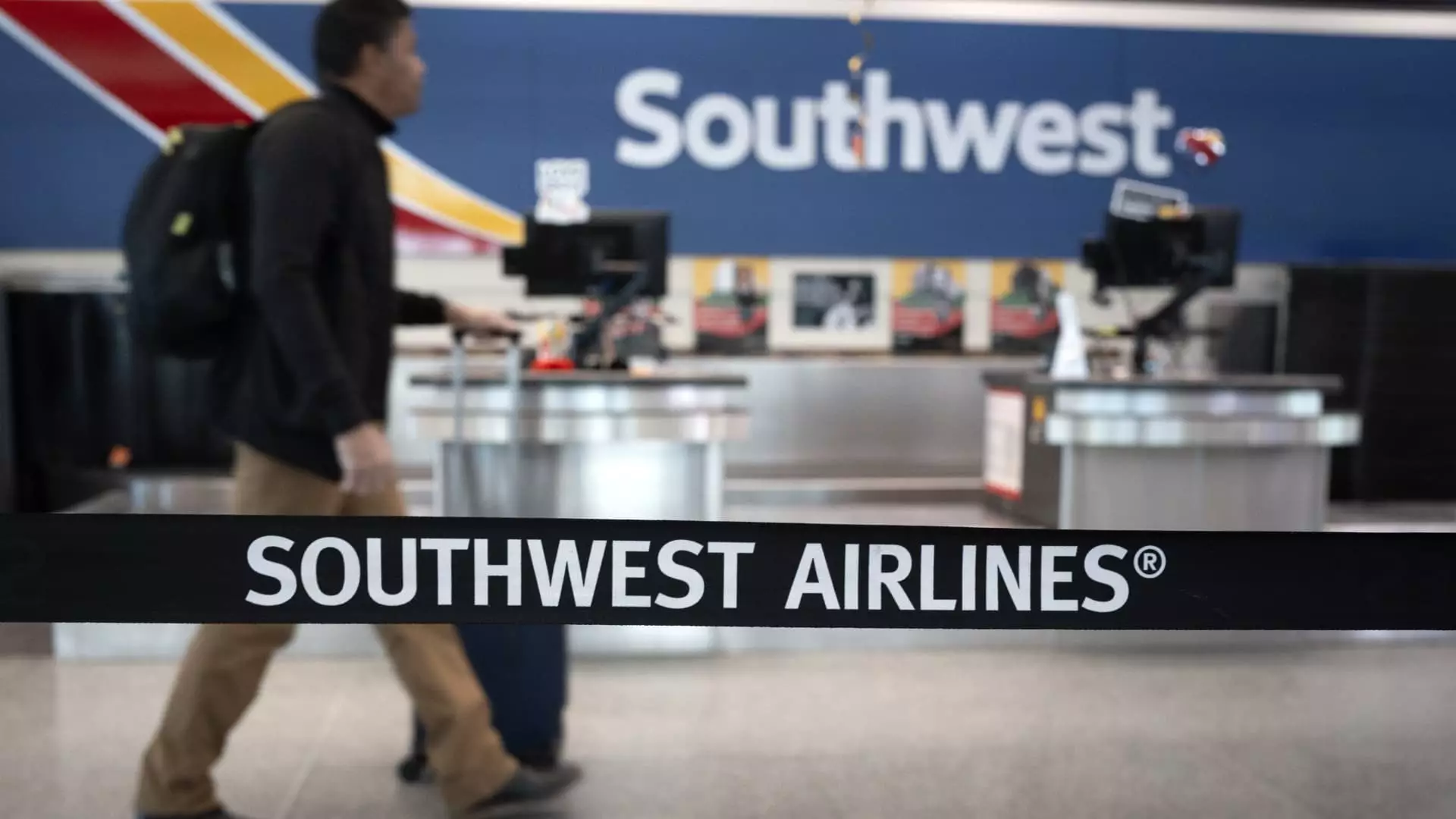In a move that has sparked panic, anger, and a fair share of disbelief, Southwest Airlines recently made the monumental decision to begin charging customers for checked bags for the first time in over fifty years. This beloved feature, where passengers enjoyed the benefit of “two bags fly free,” is no longer part of the airline’s strategy. As we reflect on this pivotal turn of events, it raises several questions regarding customer loyalty, airline revenue, and the ethics of capitalizing on long-standing traditions in the industry.
The timing of this decision screams opportunism, especially when it is coupled with an ongoing trend among airlines to adopt fees in response to economic pressures. While Southwest’s executives may point to a $7.3 billion bounty derived from baggage fees across U.S. airlines as justification for this radical shift, one has to wonder if this gamble will pay off. In a landscape already rife with complaints about hidden costs, charging for checked bags could tip the balance against one of Southwest’s most valuable assets: its reputation.
Pressure from Within
The impetus behind this drastic policy change can be traced back to Elliott Investment Management, which has thrust itself into the limelight by challenging the status quo at the airline. With strategic board seats secured, the firm pressured Southwest to reevaluate aspects of its operations that customers had long cherished. In other words, the very features that drew people to the airline are now being systematically dismantled under the guise of increasing profitability. Is this really progress?
When companies abandon their foundational principles in pursuit of quick gains, they risk alienating their most loyal customer base. Airline travel is not just about getting from Point A to Point B – it’s an experience, and for many, Southwest was synonymous with that experience. As the airline shifts towards practices reminiscent of its competitors, it begs the question: What differentiates them now?
A Dangerous Game of Fees
Not only is Southwest abandoning its two-bags-free policy, but it is also introducing “basic-economy” tickets that resemble those from Delta, American, and United Airlines. These stripped-down fares limit flexibility, restrict passengers to later boarding groups, and impose artistry on the already intricate tapestry of air travel. It is hard to quell a sense of foreboding; this feels more like an unceremonious surrender than an innovative upgrade.
While proponents argue that the market demands such adjustments, airlines must recognize that customers desire more than just low fares – they seek value and transparency. The reckoning of adding fees in a variety of categories might enhance revenue in the short term, but it could just as easily backfire as passengers seek alternatives that align with their values and expectations for quality service.
Threatening Customer Loyalty
Beyond mere financial implications, Southwest’s aggressive shift could have detrimental effects on customer loyalty. While the airline claims to maintain benefits for certain loyal customers, the broader audience will feel the sting of fees on their personal travel experiences. Loyal flyers will wonder why they should remain devoted to an airline that seems to prioritize short-term profits over long-held traditions. This subtle erosion of brand loyalty is not something that can be easily or quickly repaired.
Moreover, with travelers now expected to carry on more luggage, the airline’s long-standing commitment to accommodating checked bags feels haphazardly reversed. The image of travelers scrambling to find available overhead space is unsettling—not exactly the hassle-free experience that the airline marketed itself on for decades.
The Future of Southwest Airlines
As Southwest moves towards a model that feels increasingly familiar to competitors, questions regarding the sustainability of its strategic changes loom larger than ever. CEO Bob Jordan’s assertion that customer bookings have not been affected since this policy announcement may seem like a temporary visa for optimism, but complacency has rarely proven effective in the long run.
In a world that increasingly revels in consumer empowerment, Airlines like Southwest could forget that simply offering lower fares while adopting penalizing fees will not guarantee their place. To thrive or even survive, they must rediscover the value of their distinguished service and thoughtful policies—not just in terms of financials, but also in nurturing an inviting atmosphere for travelers.
In the end, while financial gains are certainly crucial, the soul of an airline lies in its ability to cultivate relationships built on trust, value, and exceptional service. Southwest might just find that relinquishing its historical pillars brings about a tide of changes it never anticipated.

